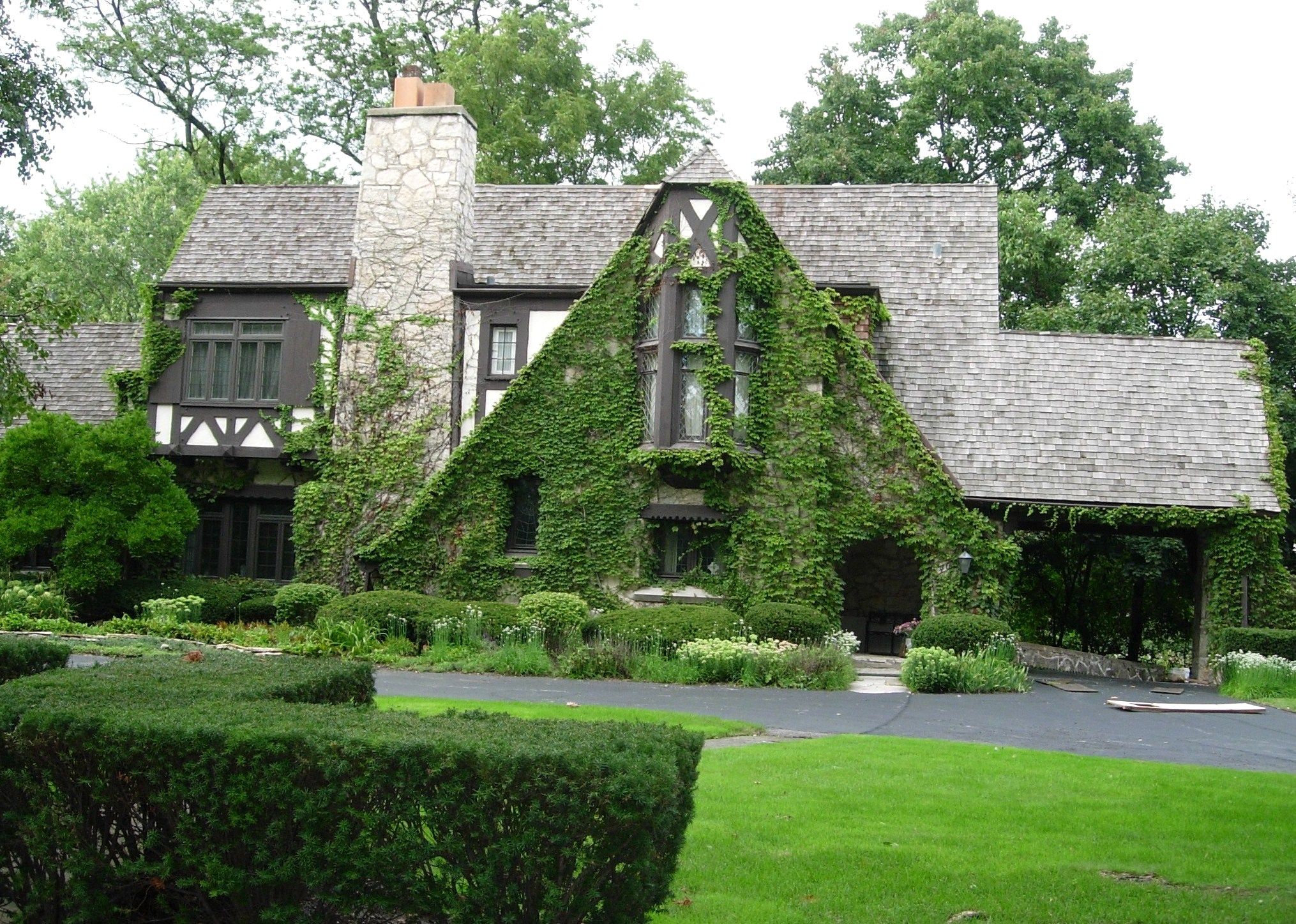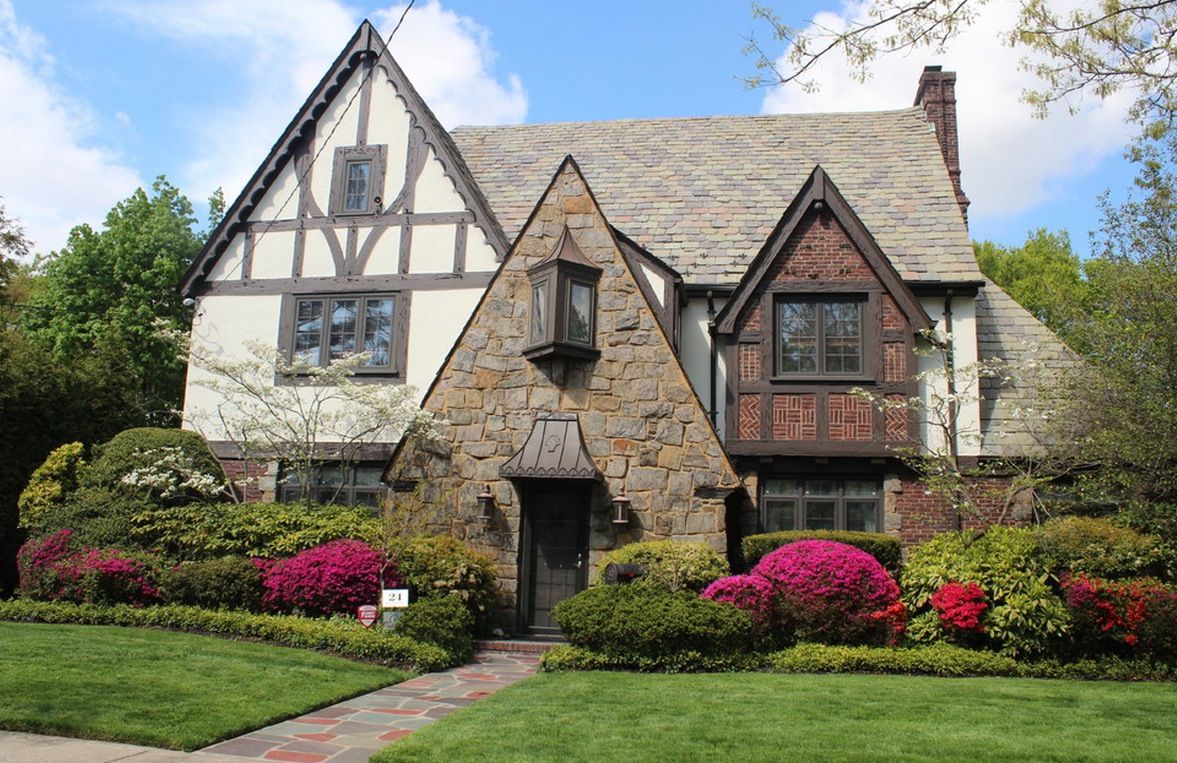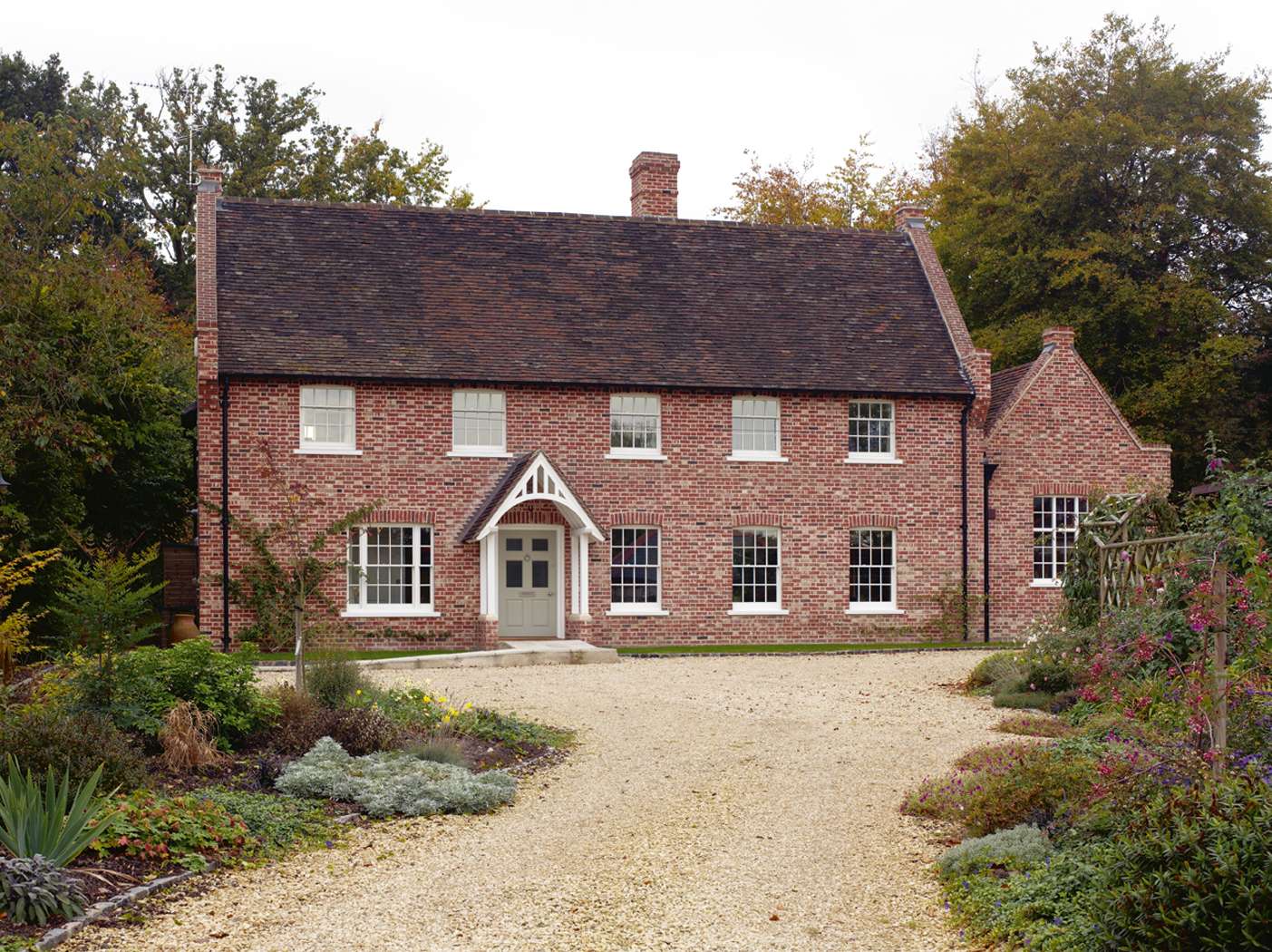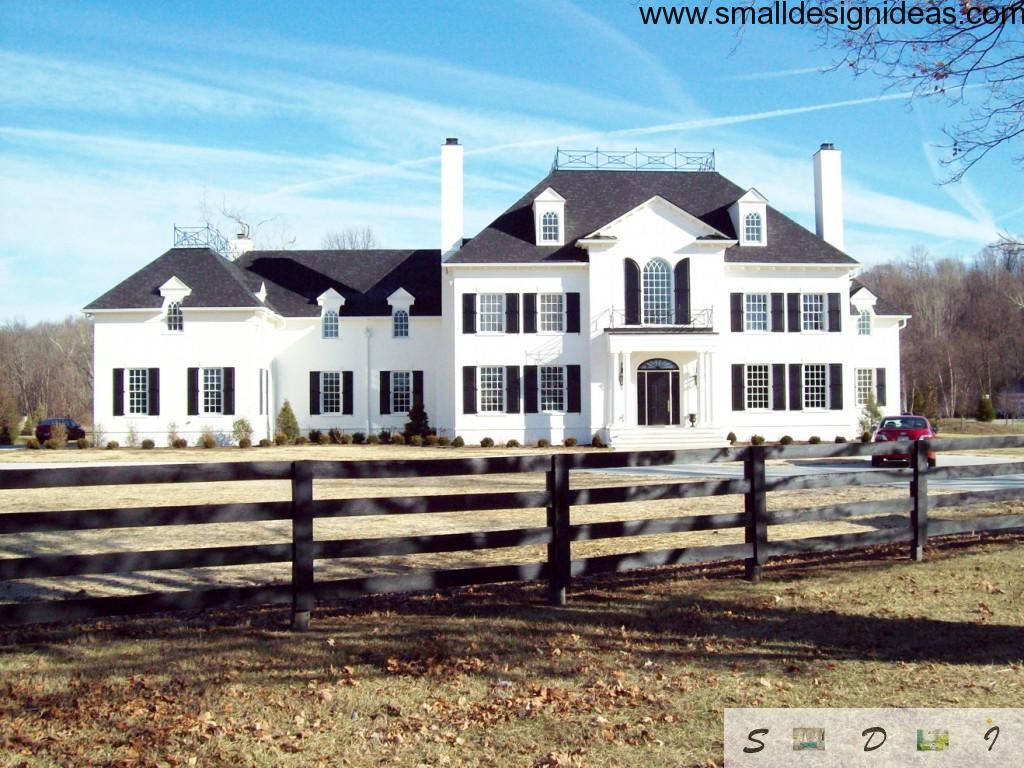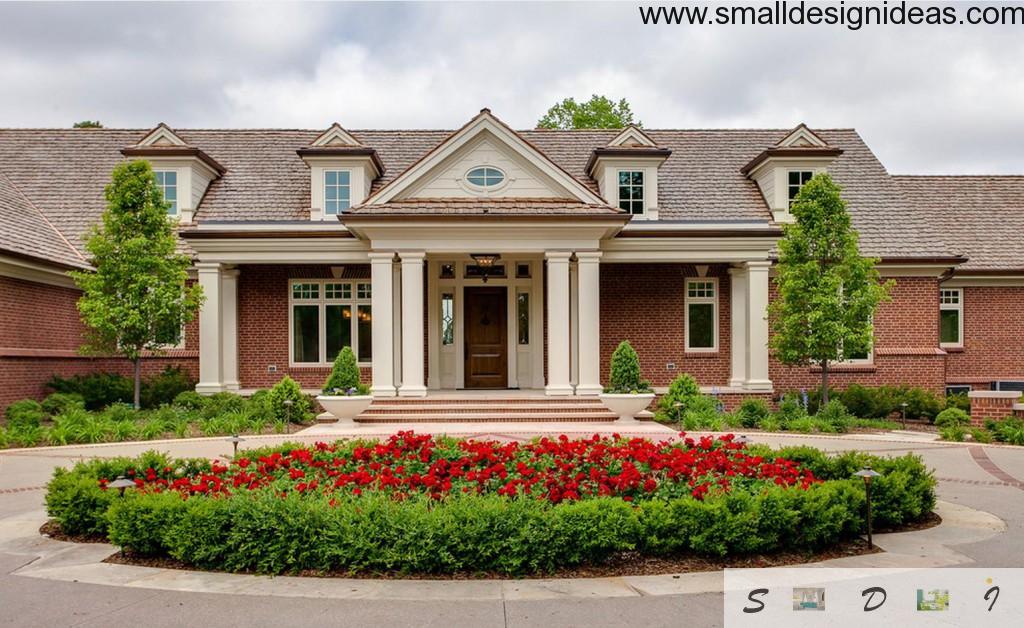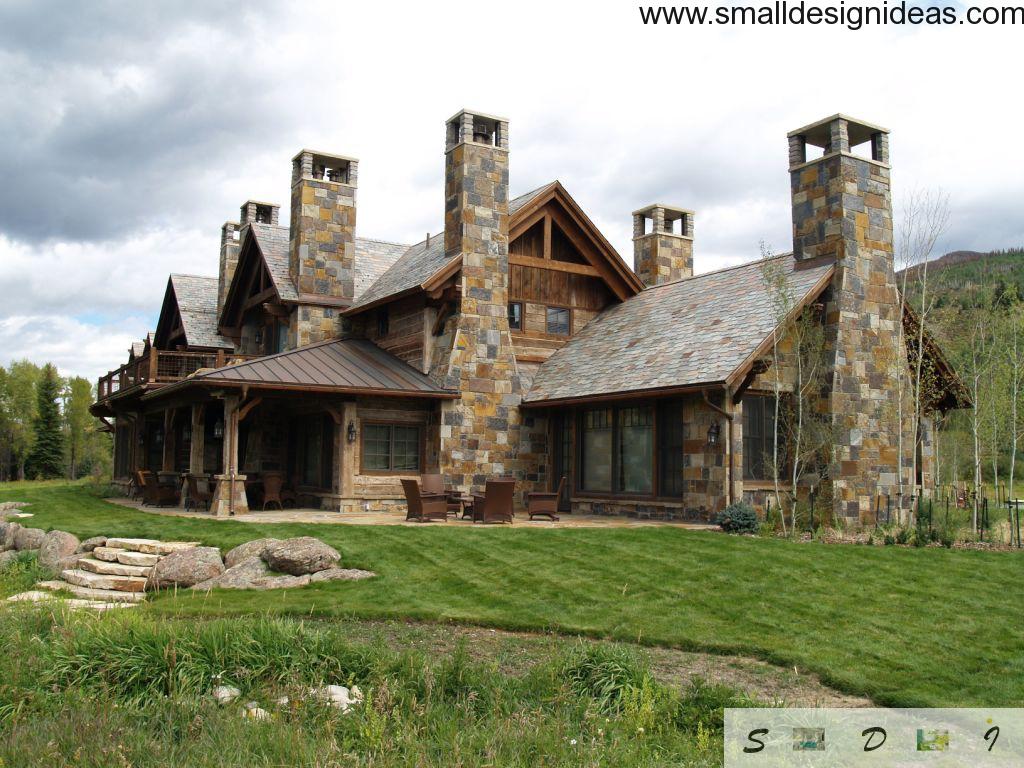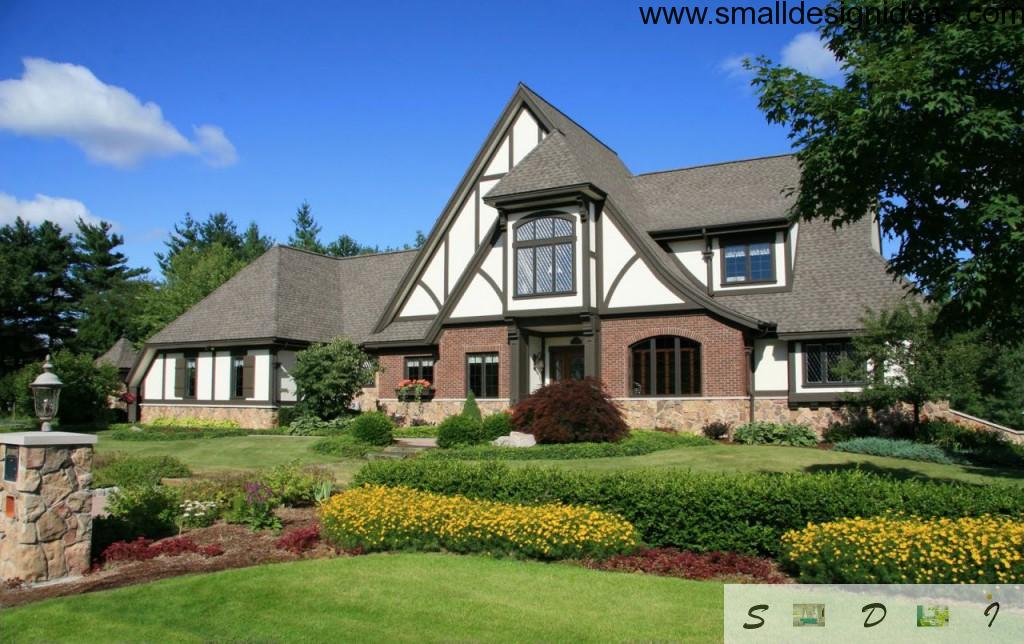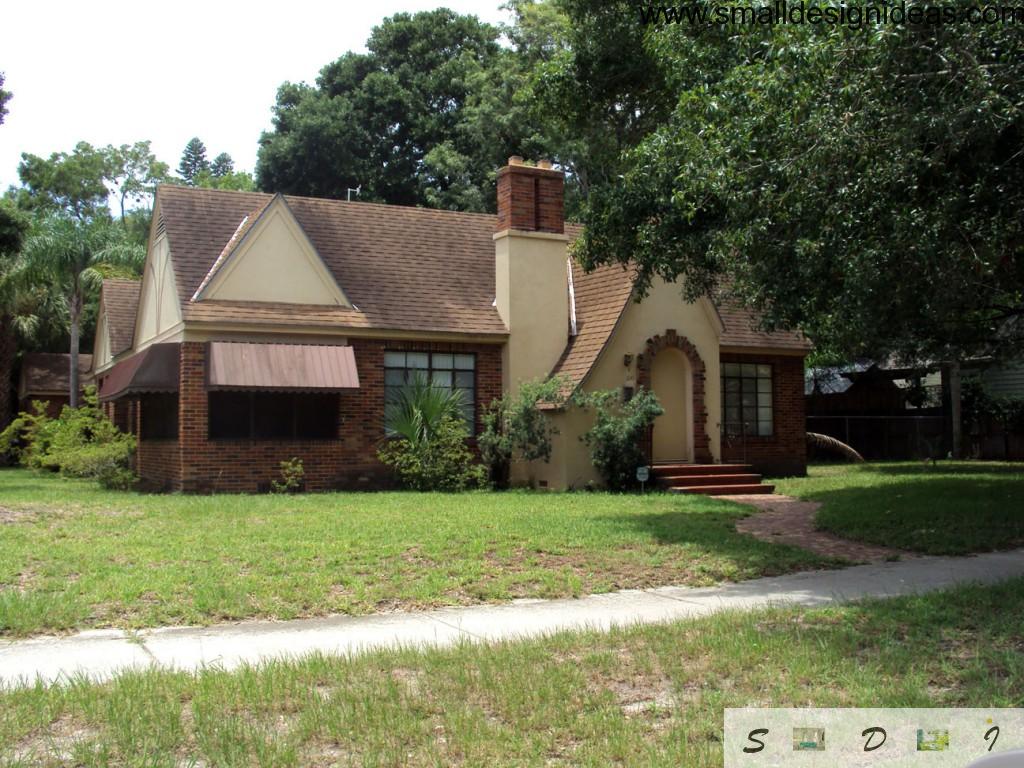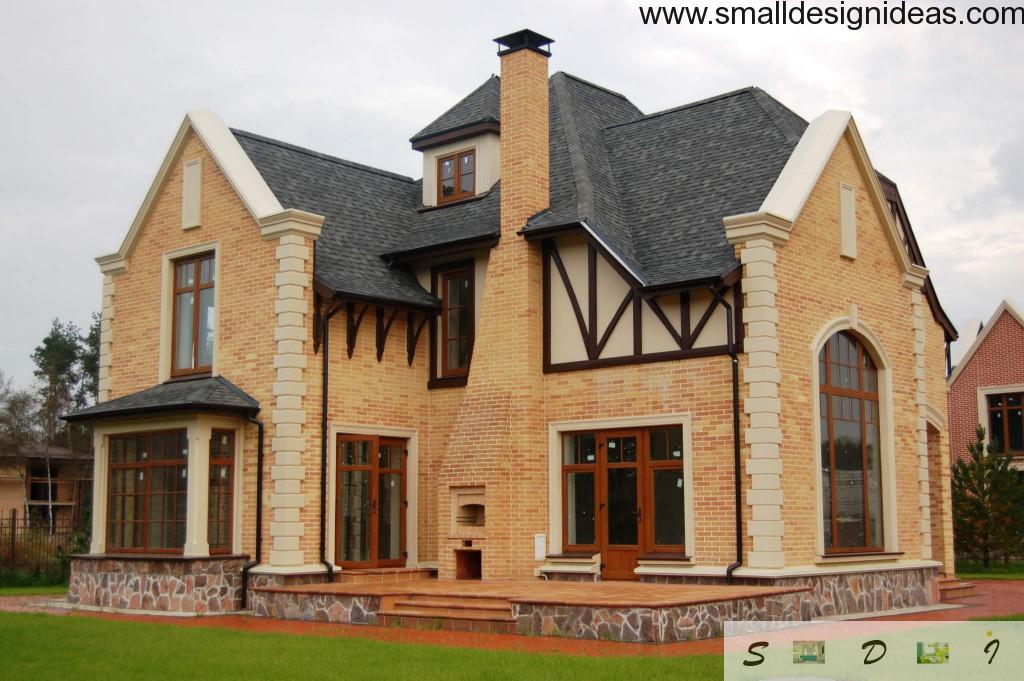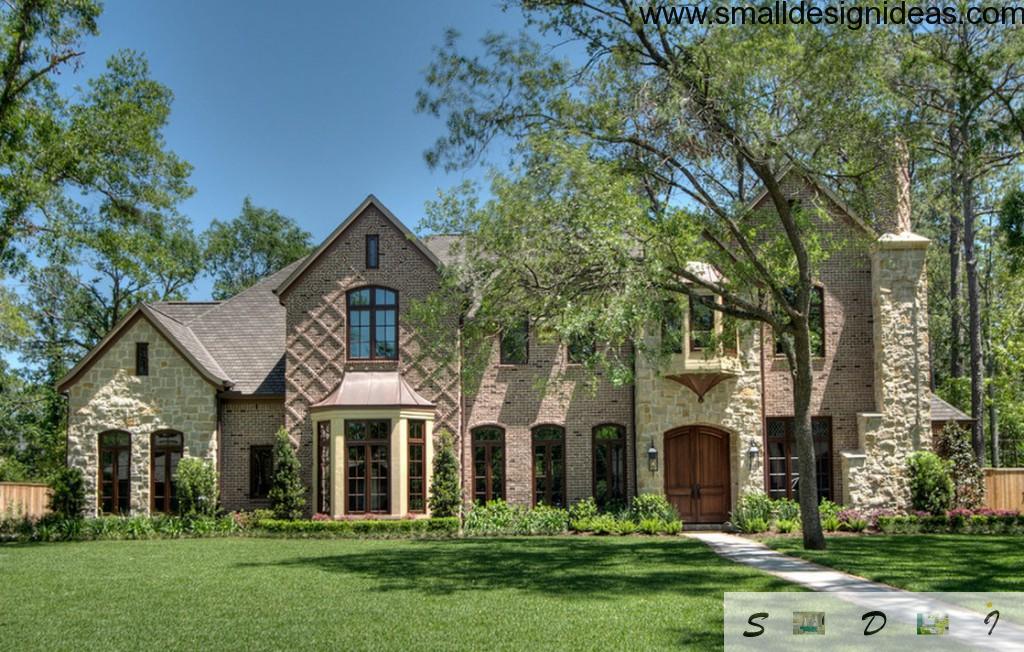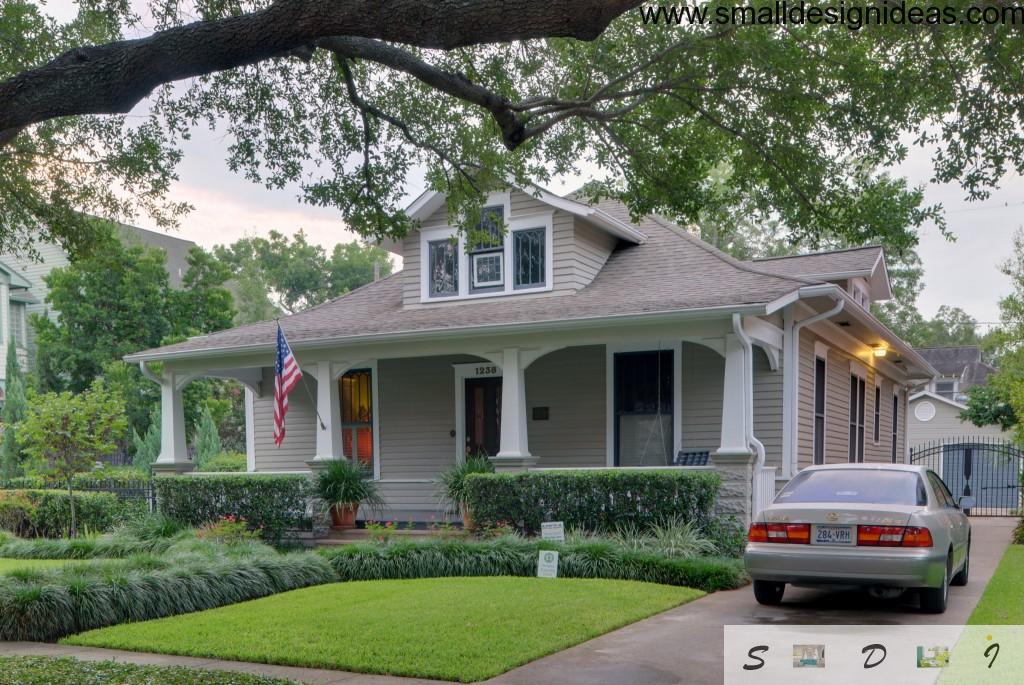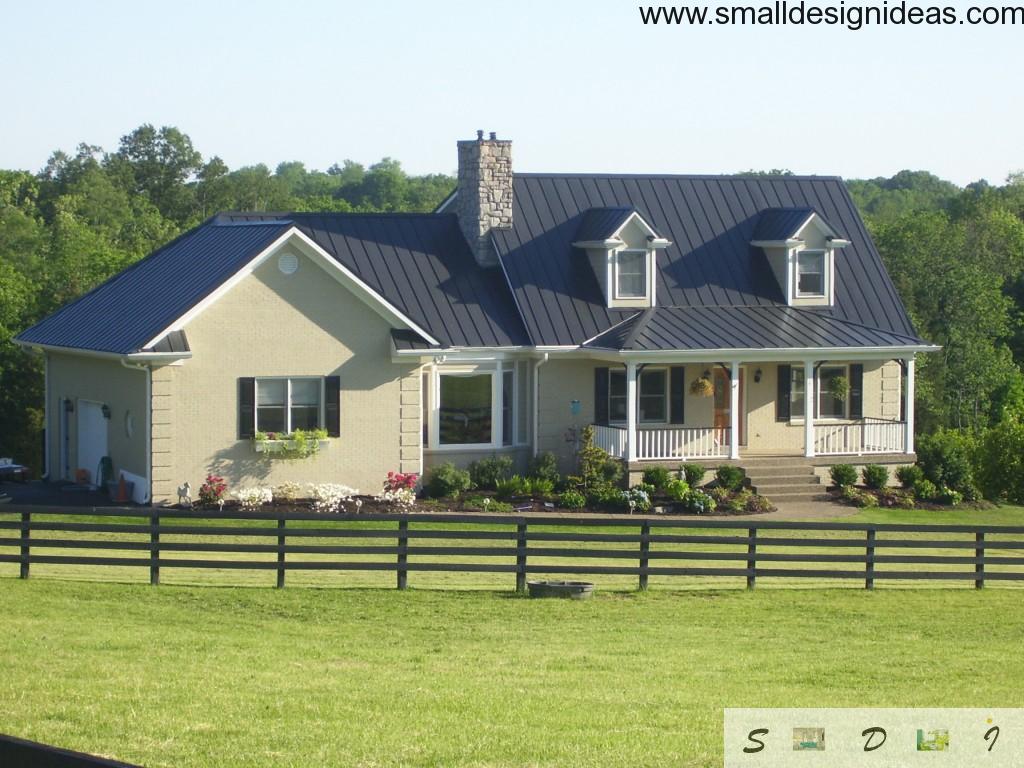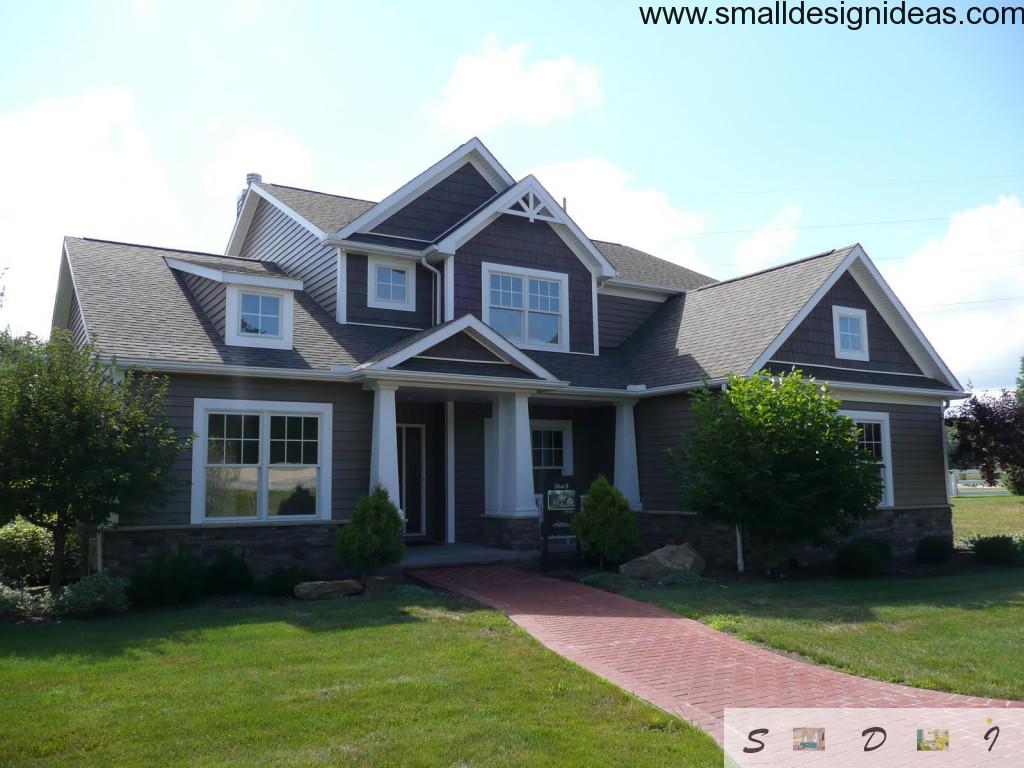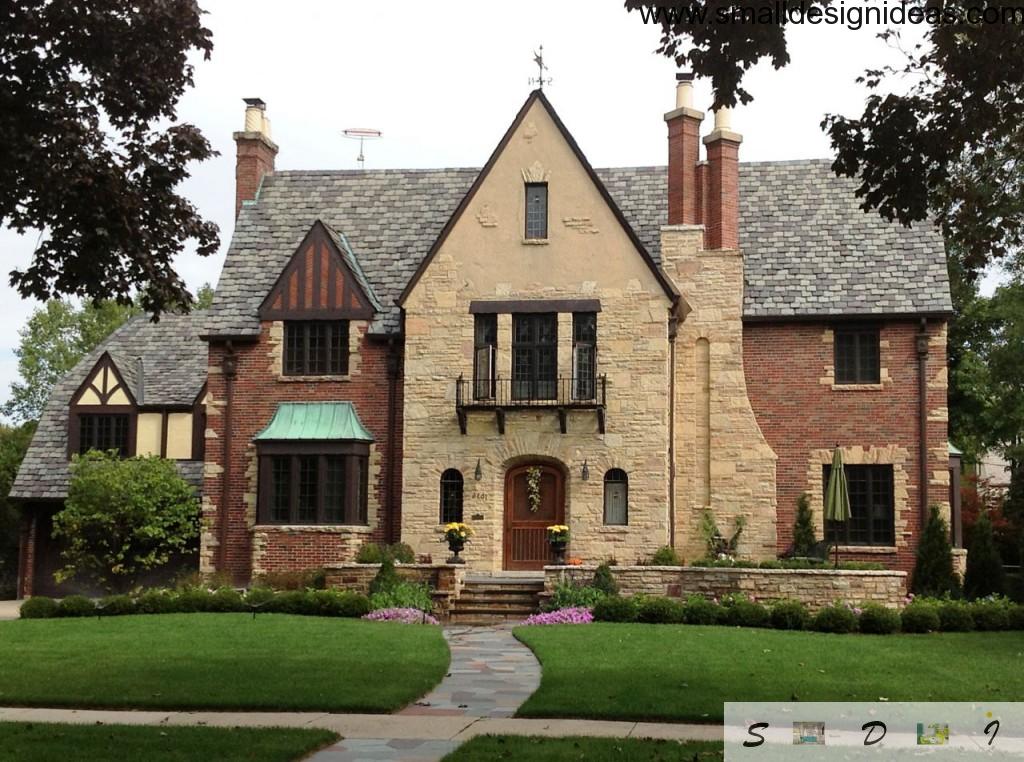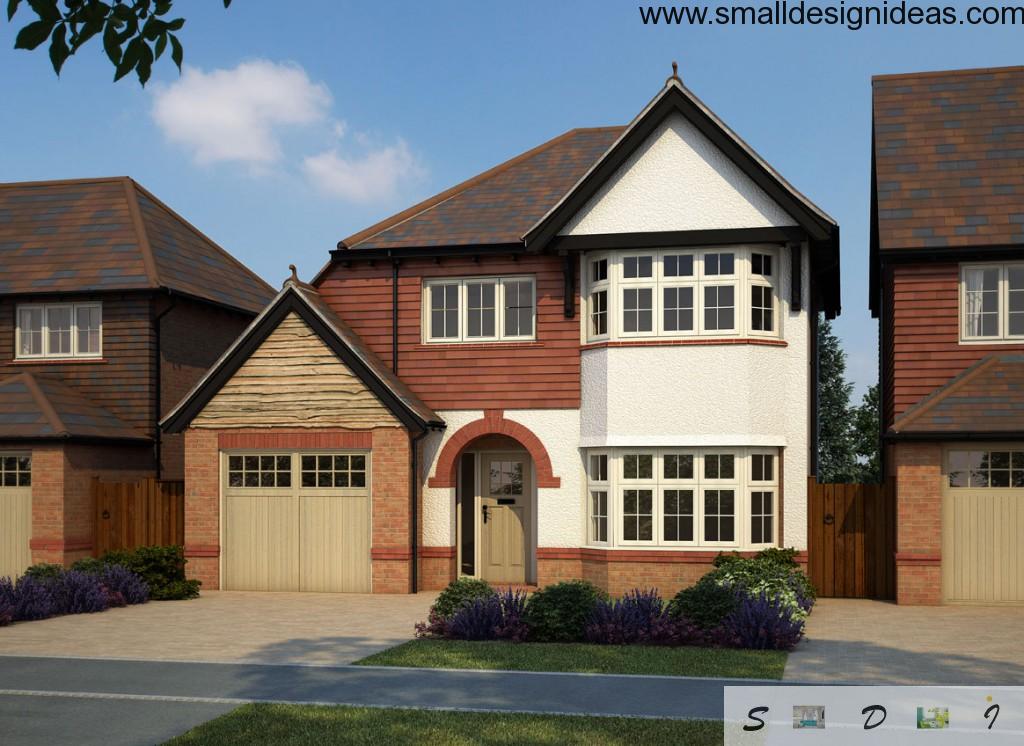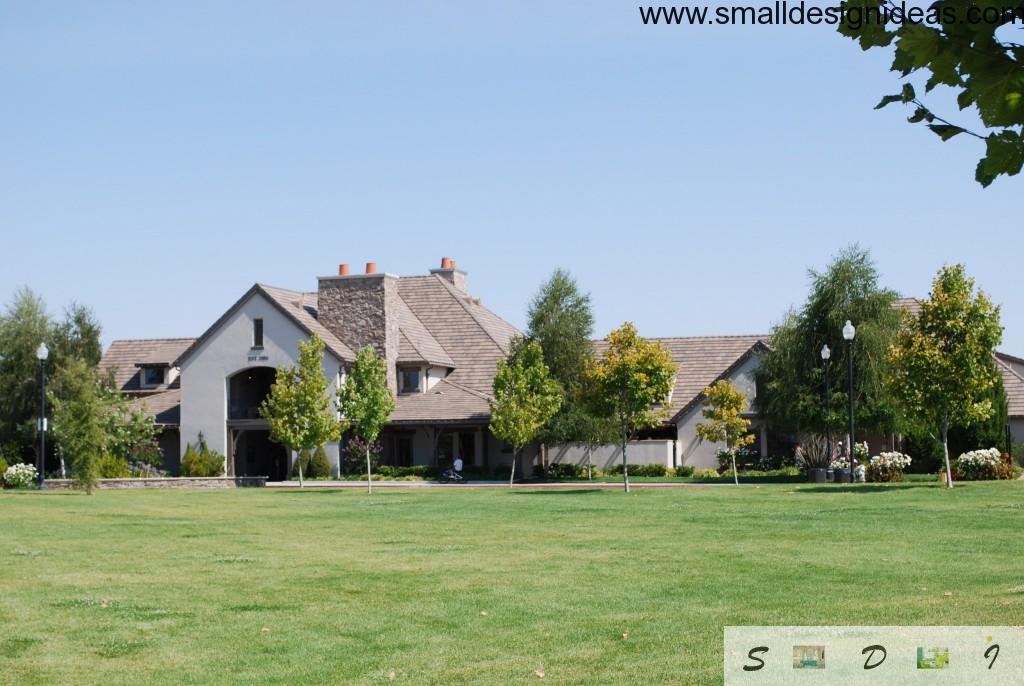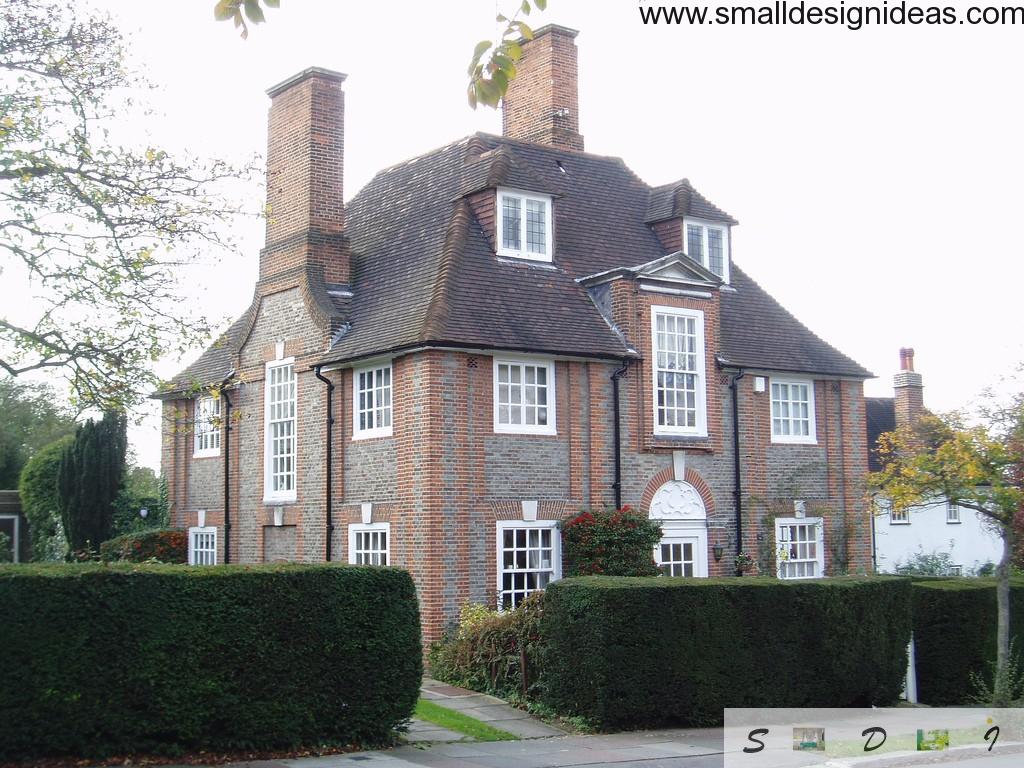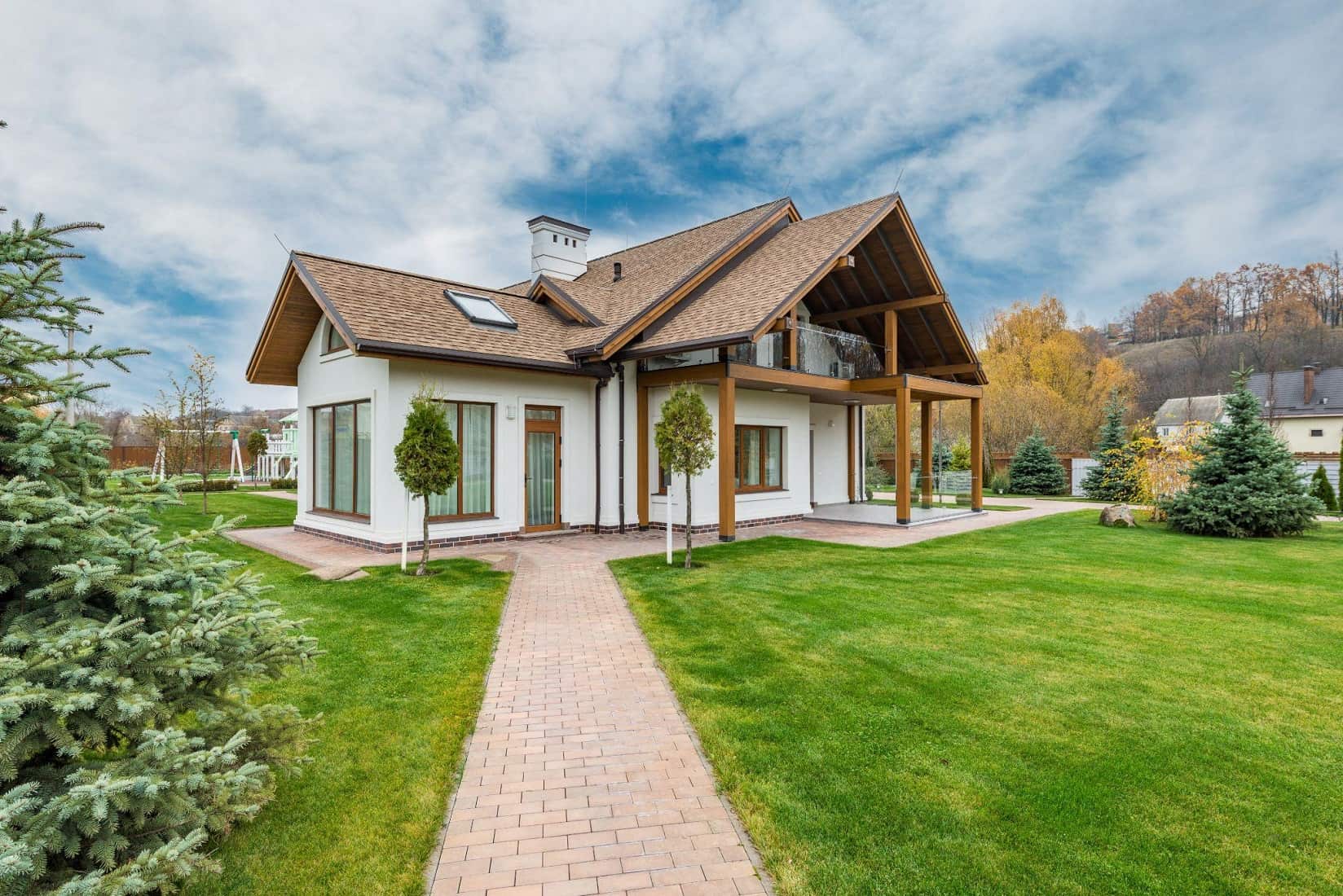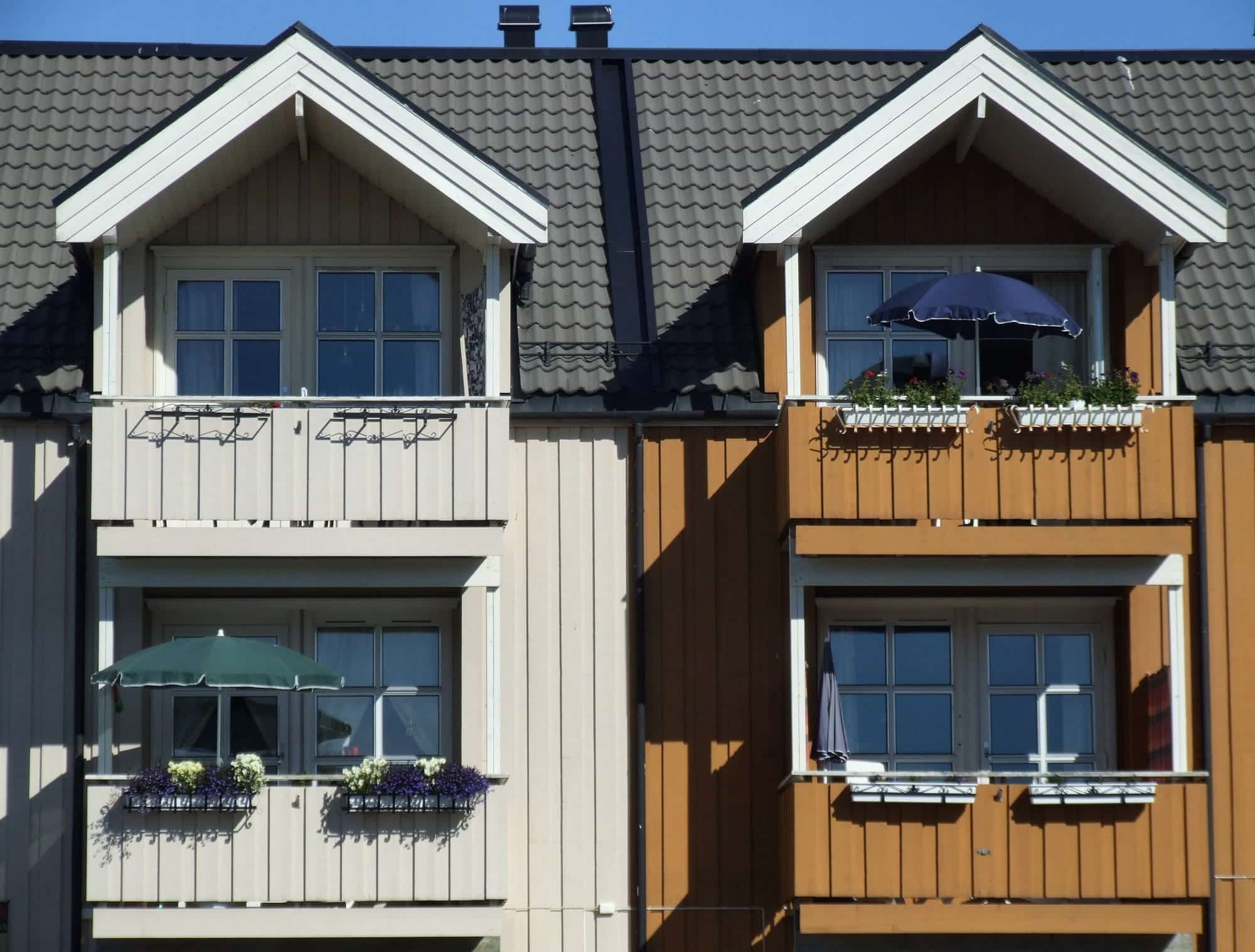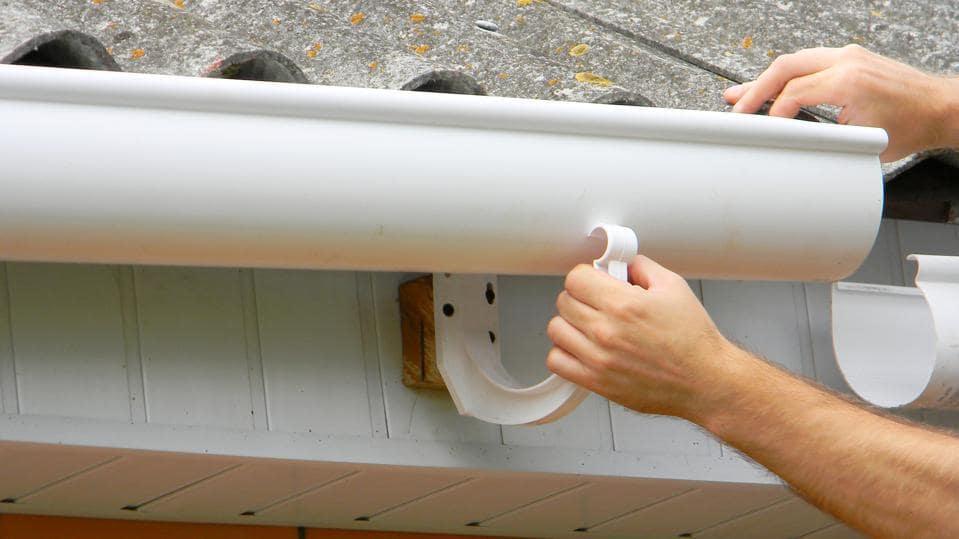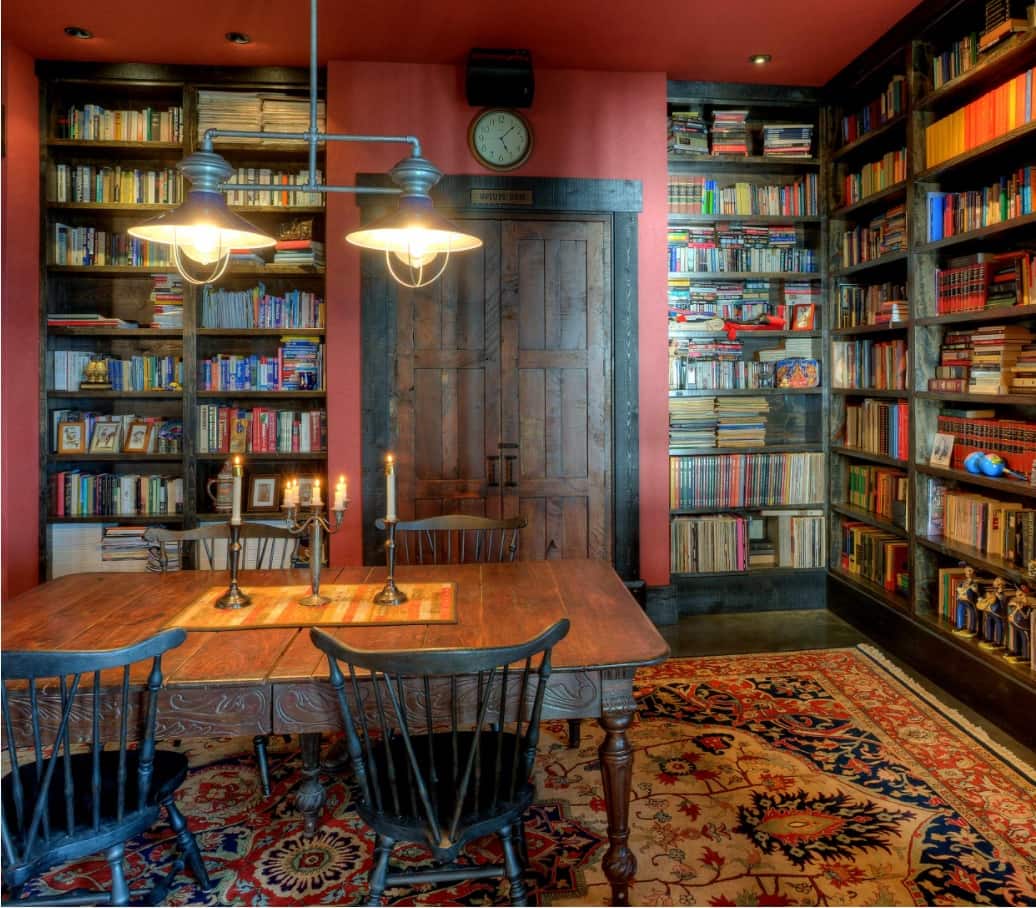The architecture of the English style design for country houses differs from others with its conservatism and rigor. At the end of the XVII century in England, some events laid the foundation for the landscape style.
Distinctions from other types of architecture:
- The use of natural materials (brick, stone);
- Large windows and beautiful finish of wall surfaces;
- Two-floor construction with a steep roof;
- Asymmetry of the exterior;
- Planting of trees and different shrubs.
This house will be a masterpiece, as it constructed ecologically and decorated with unusual plants.
Every bush has its special place – all these compliments the classic style of the house.
Country house with climbing plants reminiscent the mansion of English dukes and barons.
Green composition near the house make it solid and allusive to Tudor era.
The houses, which combine several types of material (brick and stone) during the construction, belong to this style
The house would look noble if it has high gables and walls lined with large rough stone.
In some cases they do masonry house of red brick, and the building looks like a fairy-tale medieval building.
Aristocrats had built houses without decoration. It is the Gregorian style buildings.
It is possible to select the low-key style of the house with the use of high-quality bricks. Traditionally, such a house should be in two floors.
Integrity and accurate diversity of English house`s yard depends on the correct flowerbed decoration.
The adjacent area near the house can be turned into a clearing to relax with the help of lawn grass.
On a spacious area you can build a guest house in the Rustic style. Bright flowers and shrubs are good complement in front of the door.
A facade of this house has its own characteristics: hand molding of bricklaying, modest design, a small porch.
The front part of the house can be made neat and beautiful thanks to the low basement, restrained shades of the roof covered with tiles. The main attraction is the stone chimney flue.
A more modern style of the house looks quite elegant and impressive, if a platform for open veranda is prepare. It should match the refined interior of the house.
A small house in the English style, surrounded by trees, will remind centuries-old traditions of the kings` reign (as was the custom among the British: a quiet holiday away from civilization).
Discreet luxury is evident in the design of this house with a dark gray shade roof and light gray walls. All the front sides have a distinctive profile, thereby making the house look original.
In many homes of the aristocratic style, are used built-in porthole-windows on the second floor. It was an interesting find of the architects. In addition, the interior becomes refined through wide and numerous windows, reminding window openings in the castles of the past centuries. The architects used glazing to achieve this effect.
Big-sized house has exquisite look, which includes gallery, hall-, guest rooms. It is best to decorate the courtyard with paving slabs or wild stone.
You can design such a house of stone and neat tile in the yard, but a larger area will facilitate the entry of vehicles.
Architectural construction of a house in a form of castle looks great, especially framed by the lush verdure.
Anyone who loves elegance will love panoramic windows instead of the exterior walls. Their best quality is that bright natural light enters the room. Windows also do not need curtains.
The house location near the carriageway road will be convenient. A house project with a built-in garage is considered as popular.
Some people adhere to the traditions of England with regard to isolation from the bustle of the city, ie, prefer to live away from people enjoying nature.
House-made of natural stone makes it look natural and unique at the same time. And smoothly trimmed bushes transform everything into a cozy place for family holidays. Fence in a rustic style creates a unique look and complete picture of the English home.
Undoubtedly, many people would agree to be guests in the houses built in the English style, to feel the long history of British traditions.



